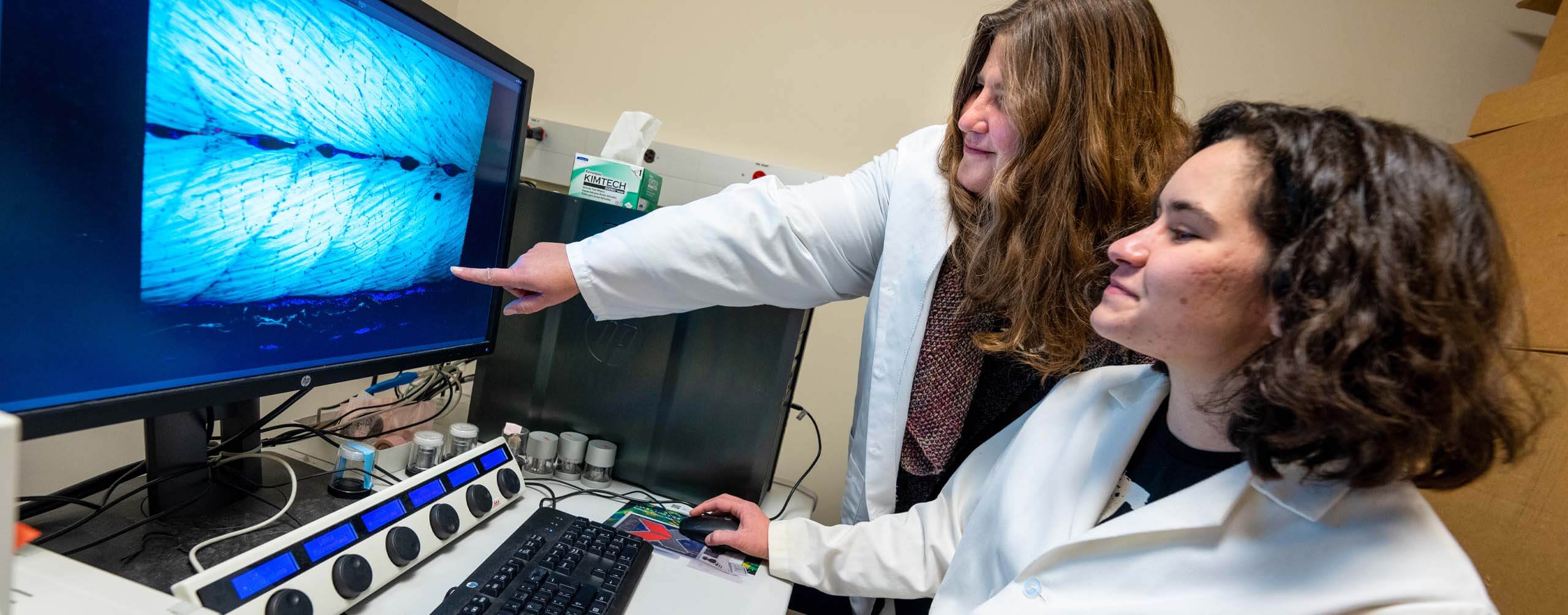
Biology
College of Earth, Life, and Health Sciences
Are you curious about life and its processes? Biology majors study how living organisms such as plants, microorganisms, fungi and animals function at the cellular, tissue, organismal, and ecological levels. Our students engage in research critical to understanding and solving problems in agriculture, biodiversity, evolution, public health, medicine, and more.
Biology at UMaine offers students a diverse set of courses, allowing them to tailor the program to their interests within all major areas of biology. As a result, students can focus on topics as diverse as medical physiology, animal behavior, and field ecology all within the same program, with each student graduating as a well-rounded biologist. We offer both BS and BA degree options. Students can choose the basic program in biology or add a concentration in ecology, entomology, or pre-medical studies.
We also offer a minor in neuroscience. Interested students can include independent research under the guidance of a faculty mentor. The B.S. program has greater focus on organic chemistry, physics, and math, preparing students for careers in human or veterinary medicine, dentistry, optometry, scientific research and development, and conservation biology. The BA program in biology has greater flexibility to pair with a minor or second major, and solidly prepares students for careers such as educators, artists, writers, lawyers, economists, public policymakers, politicians and entrepreneurs.
The University of Maine is the ideal place to study biology. We have well-equipped teaching laboratories and easy access to nearby forests, fields, streams, ponds, and wetlands — the ultimate outdoor classroom! Many of our courses incorporate active learning techniques, which research shows improves student learning, performance, and persistence. Our introductory lab courses are inquiry-based, giving students the skills to ask their own scientific questions, and design and carry out experiments to find answers, to actually be scientists from their very first day.
Our biology faculty have active, cutting-edge research programs providing undergraduate students opportunities to participate in projects such as muscle development and degeneration in zebrafish as it relates to human diseases, participate in investigations such as how plants and animals respond to climate change, biodiversity in a range of environments while preparing for careers, graduate studies, or professional school.
Peg Killian
Undergraduate Program Coordinator
Murray Hall, Room 100
207.581.2531 | peggy.killian@maine.edu
Biology
College of Earth, Health, and Life Sciences
Murray Hall, Room 100
207.581.2540

Schoodic Experience
The Schoodic Experience for incoming first year students takes place at the Schoodic Institute in Acadia National Park, the week before classes start. Incoming students spend three days with other School of Biology and Ecology first-year students, advisors, and professors viewing living species in a variety of habitats, and enjoying recreation in a beautiful setting.
